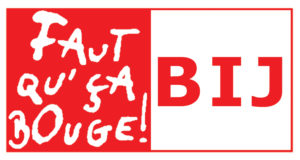About
Democracy Reloading is a strategic Erasmus+ Youth/European Solidarity Corps National Agency cooperation programme that started in 2015 with the aim to empower municipal workers to engage young people in decision-making.
The programme, based on research and feedback from various professionals, identified the competences needed by the municipality staff involved in or related to youth policy to successfully engage young people in decision-making, and thereby reload and re-engage local and regional democracy.
These competences, included in a reference framework, form the basis of the online Toolkit that Democracy Reloading has developed.
This online Toolkit aims to support municipalities and local authorities in successfully engaging young people in decision-making. Democracy Reloading is grounded in the values and principles of human rights, equality, democracy and the rule of law. The Toolkit is based on a set of 24 competence elements (attitudes, values, knowledge and skills) that will help a local (municipal) or regional government design, implement and evaluate a successful youth participation structure. This is aimed at engaging young people in the local/regional council’s decision-making process. A number of Erasmus+ Youth National Agencies have cooperated and worked together with practitioners and experts, through research and collective learning/sharing activities, to identify these competences. Each competence is described in detail and includes a variety of resources that will help you understand theories and concepts, learn about related practices and improve your implementations skills.
The Toolkit aims to help municipality staff, involved in or related to youth policy, become empowered, competent and ready to encourage young people to become involved in decision- making, thereby improving active citizenship and democracy in local communities. The Toolkit is also in line with the European Youth Strategy 2019-27, which aims to actively engage young people, youth organisations and other organisers of youth work in policies that affect their lives at all levels. It also aims to support youth representatives at local, regional and national level and to recognise young people’s rights to participate and self-organise. The competences are explained via three notions: values and attitudes, knowledge, and skills.
It is, however, important to mention that this is aimed to be a participatory process, under constant development, in order to be relevant. Here, practitioners are encouraged to contribute with examples, practices, and resources of youth participation in decision-making. This is to truly make this a living toolkit with up-to-date information, theory, practices and resources in order to reload democracy in the form of youth participation in decision-making.
The Toolkit is user-friendly and is based on a non-formal education approach. As you read through the 24 competences, the Toolkit will show your individual progress, as well as that of your municipality, all visualised through the construction of four buildings. We recommend that you work through the Toolkit together with colleagues who are – or should be – involved in implementation of youth participation in decision-making in your municipality/organisation. It may only be one person, or it may be a team of people who are working on this issue; it all depends on the size and resources of the municipality/organisation. So, please identify carefully who should be involved in learning with this toolkit, and plan your learning process together. We recommend to start with the self-assessment part to identify your strengths and weaknesses in relation to youth participation in decision-making.
The time you invest in using the Toolkit will eventually pay of, as it will thoroughly prepare you to design and implement (or improve) youth engagement in decision-making.
The Toolkit production was managed by Bureau International Jeunesse (French speaking national agency of the Erasmus + Youth Program in Belgium).
and it is supported by the following national agencies:

Authors: Raluca Diroescu, Laszlo Foldi, Stephanie Nowakowski
Revision 2022: Marius Thoresen, Raluca Diroescu
Experts and practitioners who contributed to the production of the Toolkit: Alex Farrow, Eeva Mantyla, Flavio Ramos, Evelyne Waonry, Dan Moxon, Barnabas Gulyas, Cristina Bacalso, Bojan Marjanović, Georg Feiner, Eva Jarosi, Anna Villani, Carla Marques, Anastassia Putskova, Bruno Antonio.
The European Commission’s support in the production of this Toolkit does not constitute an endorsement of its contents, which reflect the views of the authors alone. The Commission cannot be held responsible for any usage which may be made of the information it contains.
Funded by the Erasmus+ Programme of the European Union.

